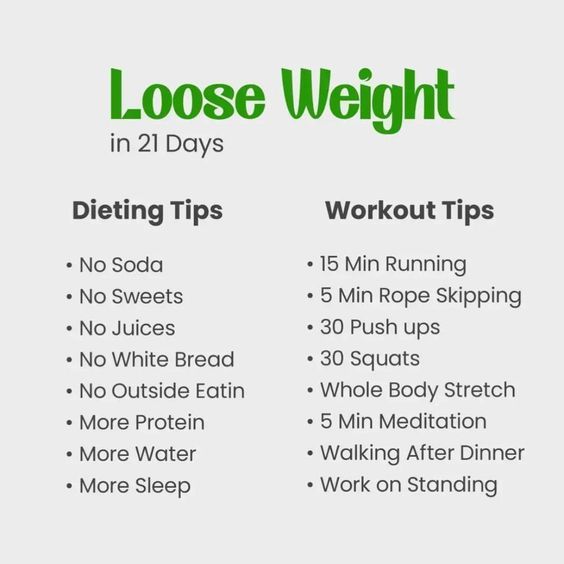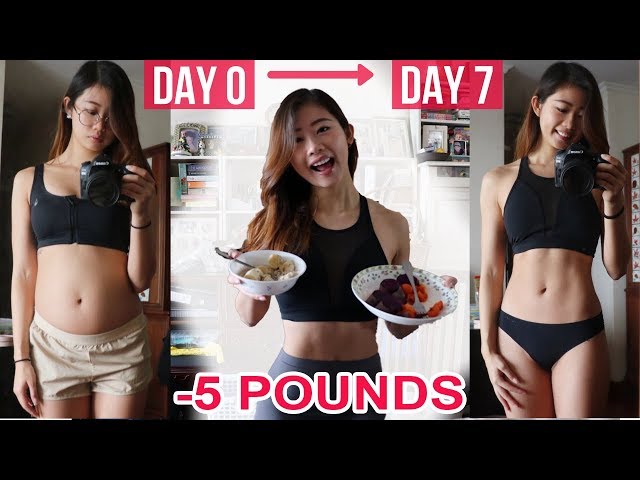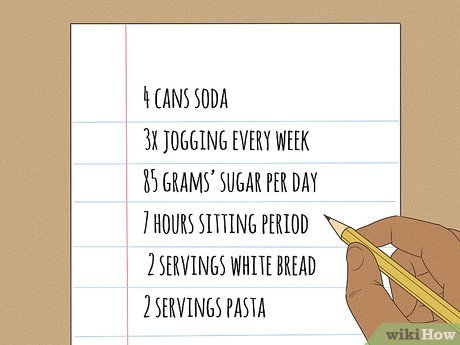How to Effectively Lose 5 Pounds in a Week: Proven Strategies for Success in 2025
Losing weight can often feel like an uphill battle, especially when aiming for a specific goal, such as losing 5 pounds in a week. Fortunately, with the right strategies, anyone can achieve sustainable weight loss through a combination of diet plans, exercise routines, and healthy eating habits. This article outlines proven methods focused on creating a calorie deficit, improving nutrition, and enhancing fitness. Here’s how to embark on your journey to make this week transformative.
Creating a Calorie Deficit for Effective Weight Loss
The first step to successfully lose weight is understanding the concept of calorie deficit. Essentially, this means consuming fewer calories than your body burns. It’s vital to know how many calories you should consume daily to achieve your weight loss goals without compromising your health.
Setting Your Daily Caloric Intake
To lose 5 pounds in a week, you must aim for a significant calorie deficit. A pound of fat is roughly equal to 3,500 calories. Therefore, to lose 5 pounds, you need a total deficit of 17,500 calories over the week, or approximately 2,500 calories per day. This isn’t ideal or sustainable for most; aiming for a 1,000-1,500 calorie deficit per day may be a more realistic goal. Tools, such as fitness apps and food diaries, can help track your caloric intake and keep you accountable.
Mindful Eating and Portion Control
Incorporating mindful eating techniques can help in naturally reducing portion sizes and enhancing your eating habits. Focus on eating slowly, savoring each bite, and ensuring you eat when you are truly hungry, rather than out of boredom or habit. Coupled with portion control, this strategy can help you enjoy meals while decreasing overall caloric intake. Additionally, consider using smaller plates, which can create a psychological effect that promotes eating less.
Effective Exercise Routines for Weight Loss
Alongside a tailored diet, an effective exercise routine is crucial for achieving weight loss goals. Incorporating different types of workouts can aid in maximizing calorie burn and enhancing fitness.
Incorporating Cardio and Strength Training
Integrating both cardio exercises and strength training into your weekly plan is beneficial. Cardio, such as running, cycling, or high-intensity interval training (HIIT), helps to burn calories quickly, while strength training builds muscle, which can enhance your metabolism. For example, adding just 30 minutes of weight lifting 3-4 times a week can help your body increase calorie expenditure even while at rest.
Creating a Weekly Workout Plan
When setting a workout plan for the week, aim for at least 150 minutes of moderate aerobic activity or 75 minutes of vigorous activity, as recommended. Here’s a sample format for effective exercises to lose weight quickly:
- **Monday**: 30 mins Cardio + 30 mins Strength Training
- **Tuesday**: 45 mins HIIT
- **Wednesday**: 30 mins Strength Training (upper body focus)
- **Thursday**: 30 mins Cardio + Yoga or Flexibility Work
- **Friday**: 30 mins Strength Training (lower body focus)
- **Saturday**: 60 mins Outdoor Activity (hiking, biking, etc.)
- **Sunday**: Rest or light yoga/stretching
Nutritional Strategies for Weight Loss Success
Nutrition plays a pivotal role in your ability to lose weight effectively. A well-balanced approach can help you feel satiated while meeting your fitness goals.
Emphasizing a Balanced Diet
A balanced diet is key to weight loss. Focus on whole, unprocessed foods that are nutrient-rich and can help in appetite control. Foods high in fiber, such as vegetables, fruits, and whole grains, can promote feelings of fullness. Additionally, don’t overlook the importance of protein-rich meals, which help support muscle growth and recovery while increasing satiety.
Meal Prep and Hydration
Meal prep is an excellent strategy for staying on track with your diet plan. Preparing meals in advance not only saves time but also helps avoid unhealthy food choices. Consider prepping healthy snacks and meals in portion-controlled sizes to prevent overeating. Equally essential is hydration; drinking enough water can improve your metabolic function, aid digestion, and often curb hunger pangs.
Motivation and Tracking Progress
Motivation is crucial for sustaining any weight-loss journey. Setting realistic goals and consistently tracking your progress can provide the encouragement needed to persist through challenges.
Keeping a Food Journal
Using a food journal to track what you eat can offer insights into your habits, helping to identify areas to improve. Recording meals and snacks ensures accountability and allows adjustments in your weight loss meal plan as needed. Many find success using apps designed for logging food intake and respective calorie counts.
Finding Support and Community
Engaging with supportive friends or joining fitness communities can boost your motivation. Consider participating in group workouts or online support groups where it is easy to share successes, challenges, and tips. Being a part of a community that values healthy lifestyle changes encourages consistency and accountability.
Key Takeaways
- Establish a sustainable calorie deficit through mindful eating and portion control.
- Implement a combination of cardio and strength training in your exercise routine.
- Focus on balanced, nutrient-dense meals while utilizing meals prep for convenience.
- Maintain motivation and accountability by tracking progress and connecting with supportive communities.
FAQ
1. What caloric deficit should I aim for to lose weight effectively?
To achieve weight loss, aim for a caloric deficit of 500 to 1,000 calories daily, resulting in 1 to 2 pounds lost weekly. This range is typically considered safe and manageable without compromising overall health.
2. How can I stay motivated during my weight loss journey?
Maintaining motivation can be enhanced by setting realistic goals, celebrating small milestones, and getting support from others. Use reminders and motivational quotes to keep your spirits up and remind yourself of your accomplishments.
3. Are detox diets effective for rapid weight loss?
Detox diets can lead to weight loss, but they are often unsustainable and may not promote overall health. Instead, focusing on consistently adopting a healthy, balanced diet is a more effective long-term approach.
4. Can I lose weight without exercising?
It is possible to lose weight through dietary changes alone, achieving a calorie deficit. However, incorporating physical activity improves overall health and boosts the effectiveness of your weight loss efforts.
5. What is the role of hydration in weight loss?
Staying well-hydrated supports metabolism, helps manage appetite, and can prevent overeating. Drinking water before meals may also promote feelings of fullness and enhance weight loss success.
6. How important is strength training for weight loss?
Strength training is crucial for developing muscle mass, which can increase your metabolic rate and enable greater calorie burn, even at rest. It’s an essential component of a comprehensive weight loss program.
7. What are the benefits of setting fitness goals?
Setting specific fitness goals helps maintain focus, provides a benchmark for measuring progress, and enhances motivation to take actionable steps toward reaching desired outcomes.
By implementing these strategies and adjusting your approach based on personal experiences, you’ll be well on your way to successfully losing 5 pounds in one week while also prioritizing overall health and well-being.


